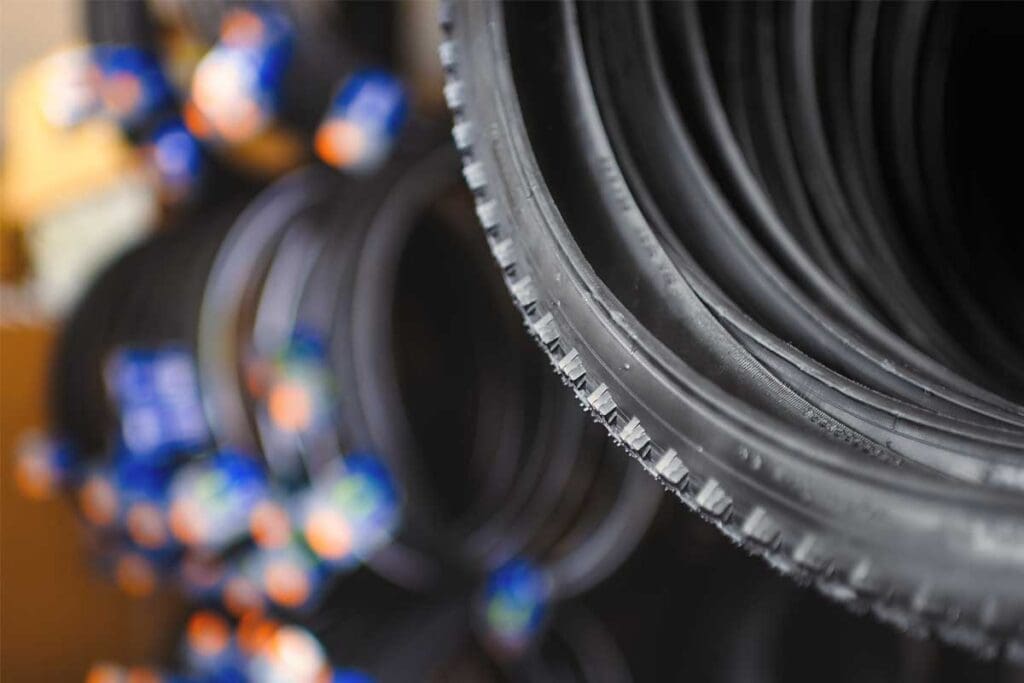New BIA Sustainability Committee to Assess Industry’s Performance

Melbourne, Victoria
Bicycle businesses throughout Australia will soon be consulted on their recycling practices, to determine current levels of resource reuse in the industry, after a new Bicycle Industries Australia Sustainability Committee convened for the first time last week.
BIA general manager Peter Bourke said the committee’s initial tasks will include quantifying existing recycling habits by bike stores and the broader Australian bicycle industry to set a benchmark, finetune the group’s objectives, and identify the best approaches to achieve them.
“We’ll be looking to get a representative sample of Australia’s approximately 900 stores, by dividing them into their States, store size and their main brands,” Peter said.
“Then it will be a case of going directly to that sample group and asking them questions about what they recycle and the amount of materials they’re recycling.”
Peter has been joined on the committee by five industry members: Lana Murray from 99 Bikes, Carlos Scudeller of Mordy Cycles, Specialized Bicycle Components Strategy and Sustainability Manager Laura Wilson, Revolve ReCYCLE CEO Guido Verbist and Adam Lana from youth employment social enterprise Good Cycles.
BIA last month called for nominations from importer and retail industry members to join the committee, to provide advice to the BIA board in its efforts to help the bicycle sector achieve its sustainability goals.
Peter said BIA is very happy with the representation on the committee, which will meet monthly.
“We’ve got retailers, including large retailers, wholesalers, a good independent marketing element and someone from the recycling industry,” he said.
“The industry needs to own the issue of recycling and its solutions. BIA can provide best practice guidelines but the industry is best placed to tell us what is practical, what is achievable and what they are willing to contribute to.
“People on the ground are also the experts and the people who deal with these issues on a day-to-day basis. They can tell us how to efficiently and effectively deliver the best outcomes.”
“Last week’s meeting got the ball rolling by identifying our short-term goals, the recycling of lithium-ion batteries and rubber, a mid-term goal to reducing the amount of packaging coming from upstream, and long-term goals such as increasing the capacity of the industry’s circular economy to minimise the number of bikes that go to landfill.
“Not only are we looking at recycling, we’re also looking at the storage and movement of damaged, waste and other batteries to reduce the risk of any negative outcome on members of the bike industry.”
“Of the 450,000 bikes sold through stores in Australia each year, how many of them can we keep in the circular economy, so they don’t go to landfill.”
Peter said the committee would look at all three key outcomes of sustainability: rehoming, repurposing and recycling.
“Recycling is the least desirable outcome of the three because it’s breaking down a product to, generally, make a lower-quality product,” he said.
BIA’s investigations include looking at the potential economic benefits of improved management of lithium-ion batteries, including keeping insurance premiums down.
“With such a focus on the potential risks presented by lithium-ion batteries, not only are we looking at recycling, we’re also looking at the storage and movement of damaged, waste and other batteries to reduce the risk of any negative outcome on members of the bike industry,” he said.
‘That includes looking at a fireproof storage solution for damaged batteries in stores. This could form part of guidelines insurers could expect stores to achieve to improve insurance premiums.
“In Australia, we have not seen any business-related fires in relation to lithium-ion battery management but internationally there has been a number and, as Australian insurers use international underwriters, international examples and experience impacts what happens with insurance in this country.”
He said the Sustainability Committee will also look at solutions for stores to safety store batteries as part of the service provided by Ecocycle, a specialist recycler of materials in batteries.
Solutions for Rubber
Peter said the sustainability committee’s work on rubber recycling could bring together ongoing programs by numerous individual companies.
“We’ve been looking for a solution for rubber for a number of years because it is one of the most disposed of products in the industry,” he said.
“A lot of brands are investigating options and by bringing them all together, through scale, we should be able to come up with the best solutions. Drawing together the waste rubber from 100 brands and 900 shops – or even half that – will also achieve a better outcome for the entire industry.
Further information about the BIA’s Sustainability Committee is available by contacting the association at office@bikeoz.com.au or 0438 871 271.
UK Nearing Ban on Tyres to Landfill
The UK is getting close to a complete ban on bicycle tyres and tubes going to landfill, according to reports at a summit last month.
A National Bicycle Tyre Recycling Scheme now has national coverage with its collection points, paving the way for the ban to come into effect, a representative of the scheme reported at a summit hosted by the UK Department for Environment, Food and Rural Affairs.
The scheme, launched in 2020, has been diverting bike tyres from landfill by converting the rubber into a range of products.
But so far, bicycle tyres and tubes have been exempted from laws introduced in 2002 to ban automotive tyres from going to landfill.
Velorim, the organisation formed to run the bike tyre recycling scheme, has been operating under an agreement the exemption would be lifted once the scheme is in a position to receive a large increase in waste rubber.
According to a report in Cycling Industry News, Velorim chairman Dave Hawthorn has declared: “This is a momentous day for the cycle trade, with England and Wales looking set to be the first place in the world to introduce environmental controls on bicycle tyres and inner tubes that would ban them from landfill and limit overseas disposal.”
